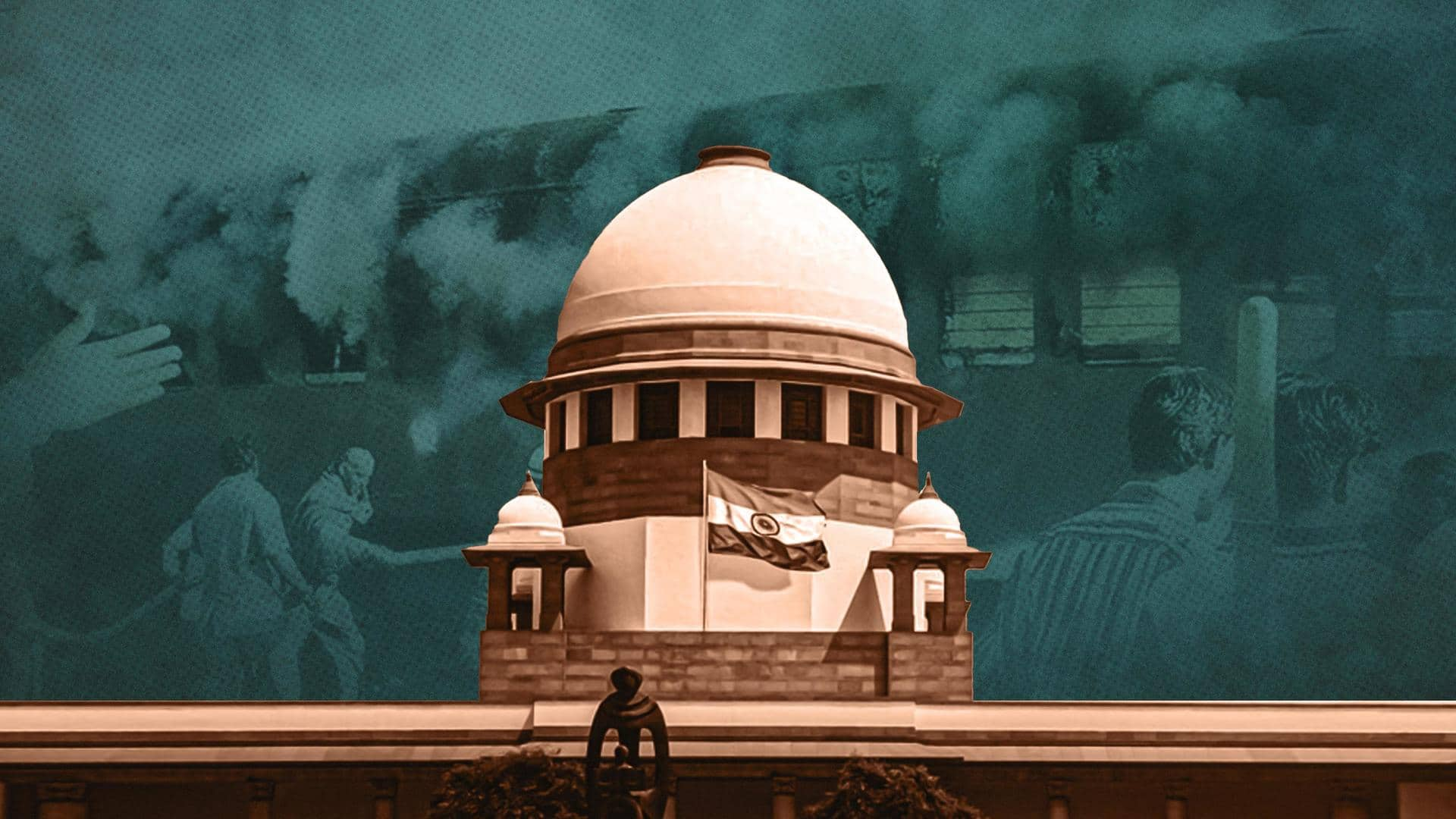
SC grants bail to 8 convicts in Godhra carnage case
What's the story
The Supreme Court on Friday granted bail to eight convicts in the 2002 Godhra train burning case, observing the period of their incarceration and their role in the crime. The court, however, refused to consider the bail plea of four other convicts on the basis of their roles. Notably, 58 Hindu pilgrims returning from Ayodhya in Sabarmati Express were killed in the fire.
Context
Why does this story matter?
The incident sparked widespread riots across the state, also known as the 2002 Gujarat Riots, in which around 2,000 people were killed. The Bharatiya Janata Party (BJP) and PM Narendra Modi, who were in power in Gujarat at the time, were accused of fuelling the riots. They allegedly protected miscreants during the ensuing violence and prevented the police from intervening to stop the riots.
Twitter Post
Twitter Post
#SupremeCourt grants bail to eight convicts in the #Godhra carnage case, having regard to their period of imprisonment undergone and role in the crime; refuses to consider bail application of four other convicts in view of their role.#SupremeCourtofIndia pic.twitter.com/2DHztuGVlY
— Live Law (@LiveLawIndia) April 21, 2023
Mehta
SG Mehta opposed bail of four other convicts
The government's counsel, Solicitor General (SG) Tushar Mehta, opposed the bail of four convicts in the case. He said that an iron rod was recovered from one of the four convicts, while another was caught with a dhariya, the Gujarati name for a sickle-like tool. One of them was found buying and storing petrol, and the fourth attacked and looted passengers, Mehta said.
Hegde
Petitioner's counsel urged court to adjourn hearing
Appearing for the petitioners, senior Advocate Sanjay Hegde urged the court to grant bail to the eight convicts and adjourn the hearing in the bail plea of the other four instead of dismissing their petitions. He urged Chief Justice of India (CJI) DY Chandrachud and Justice PS Narasimha to consider their bail applications in view of the festival of Eid.
Information
Conflicting reports by probe commissions
The Nanavati Commission, a one-man commission set up by the Gujarat government in 2002, concluded that the fire was a pre-planned conspiracy. However, the UC Banerjee Commission, instituted by the Central government in 2004 ruled out the possibility of an external attack.